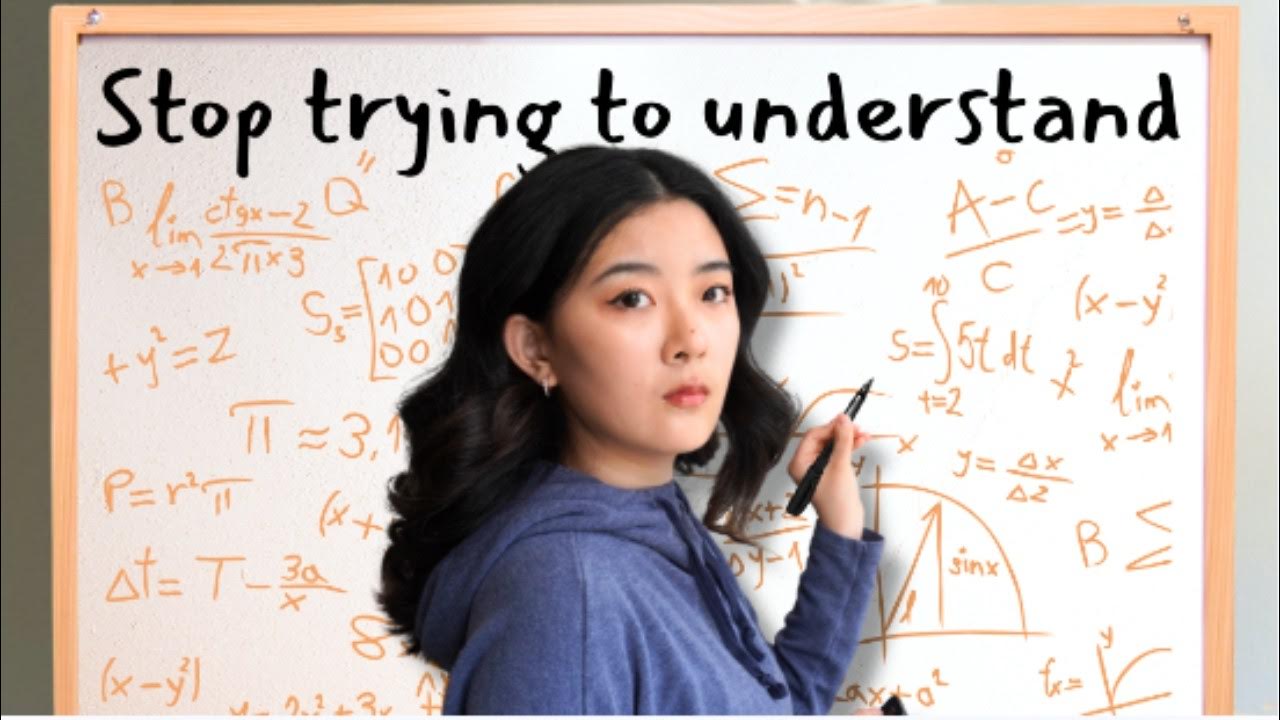The math study tip they are NOT telling you - Ivy League math major
Summary
TLDRIn this video, Han, a math and operations research graduate from Columbia University, shares his journey from struggling with math in high school to excelling in it. Despite initially hating math and performing poorly, Han discovered a new approach to studying: instead of struggling alone, he learned to understand and internalize answer keys before attempting problems himself. This method boosted his confidence and efficiency, leading to significant improvement. Han emphasizes the importance of practice and understanding fundamentals, encouraging viewers to tackle math challenges with a positive mindset and effective strategies.
Takeaways
- 😌 Han, the speaker, overcame a significant struggle with math and now excels and enjoys it.
- 🎓 Han graduated from Columbia University's engineering school, majoring in math and operations research.
- 🤔 People often assume intelligence is the key to math success, but Han's story challenges this notion.
- 🏫 Han was originally from China and initially chose the liberal arts track due to a poor understanding of math.
- 📚 Han's first high school math test was a failure, scoring significantly below the class average.
- 🔄 Han's initial approach to difficult math problems was ineffective, leading to frustration and a lack of progress.
- 📉 Han's negative attitude towards math created a cycle of avoidance and poor performance.
- 🛑 In college, Han adopted a new strategy: understanding the answer key before attempting problems independently.
- 💡 Han emphasizes the importance of grasping the answer key's approach and then applying it to solve problems on one's own.
- 📈 This method is more effective as it builds confidence, saves time, and leads to a comprehensive understanding of the material.
- 🔗 Han explains that math has its own barriers and requires understanding foundational concepts to make sense of advanced topics.
- 📝 Han suggests finding practice problems with thorough answer keys and working through them to identify and fill knowledge gaps.
- 🔢 Han recommends doing at least 20 practice questions daily to solidify understanding and improve math skills.
- 📈 Han's personal experience shows that with consistent effort, one can transform from struggling with math to excelling in it.
Q & A
What initially caused Han to struggle with math?
-Han struggled with math initially because he found the content difficult to understand and couldn't follow the teacher's explanations.
How did Han's performance in math during high school affect his self-perception?
-Han's poor performance in math led him to believe he was not smart and caused him to develop a negative attitude toward the subject.
What track did Han choose in high school and why?
-Han chose the liberal arts track in high school because he was bad at math and science, finding them too difficult.
What change in strategy did Han adopt in college to improve his math skills?
-In college, Han changed his strategy by thoroughly understanding the answer keys before attempting to solve problems on his own, which helped him grasp the concepts better.
Why does Han believe it's important to understand the answer key before attempting to solve a problem independently?
-Han believes understanding the answer key first is crucial because it provides a correct approach to solving the problem, which helps in learning the right method and avoiding frustration.
How did Han’s new approach to solving math problems improve his performance and confidence?
-Han’s new approach led to a sense of accomplishment and boosted his confidence as he was able to solve problems correctly on his own after understanding the answer keys.
What advice does Han give for dealing with difficult math topics?
-Han advises thoroughly understanding the fundamental concepts and answer keys, practicing regularly, and seeking relevant practice problems with detailed answer keys.
How did Han manage to become one of the best students in his math class?
-Han managed to become one of the best students by doing extra hours of math problem sets, in addition to his homework, and by consistently using his new approach to understand and solve problems.
What is Han’s opinion on the importance of paying attention to lectures and doing homework?
-Han believes that paying attention to lectures and doing homework are still essential, even if one adopts his strategy of understanding answer keys first.
What analogy does Han use to explain the difficulty of learning new math concepts compared to other subjects?
-Han compares learning new math concepts to learning about historical figures, noting that math requires understanding all its fundamental concepts, whereas historical figures can be quickly understood with basic information.
Outlines

This section is available to paid users only. Please upgrade to access this part.
Upgrade NowMindmap

This section is available to paid users only. Please upgrade to access this part.
Upgrade NowKeywords

This section is available to paid users only. Please upgrade to access this part.
Upgrade NowHighlights

This section is available to paid users only. Please upgrade to access this part.
Upgrade NowTranscripts

This section is available to paid users only. Please upgrade to access this part.
Upgrade NowBrowse More Related Video
5.0 / 5 (0 votes)





